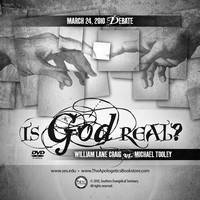Post Author: Bill Pratt
An interesting article published on CNN’s site the other day claims that many people are angry at God, even atheists and agnostics. The article, entitled, “Anger at God common, even among atheists,” raises a lot of interesting questions. Who gets angry at God and for what reasons? According to the article, “People get angry at God all the time, especially about everyday disappointments, finds a new set of studies in the Journal of Personality and Social Psychology.”
It continues, “It’s not just religious folks, either. People unaffiliated with organized religion, atheists and agnostics also report anger toward God either in the past, or anger focused on a hypothetical image – that is, what they imagined God might be like – said lead study author Julie Exline, Case Western Reserve University psychologist.”
Why do people get angry at God?
Anger at God can strongly resemble feelings you may have against another person, Exline found. God may seem treacherous or cruel when bad things happen, just like another individual might. Your anger may fester even more when there’s no good reason for the negative event, such as a natural disaster or a disease, to occur. And strong, longstanding negative emotions of any kind can lead to physical ailments.
Is being angry at God bad for you?
Moreover, distress at God is associated with mental health symptoms. Exline and colleagues found that among cancer survivors interviewed once and then again a year later, those who were angry at God at both points in time had the poorest mental and physical health. But the study cannot prove whether anger at God made them feel worse or that feeling worse made them more angry at God.
One other fascinating tidbit from the article: “In studies on college students, atheists and agnostics reported more anger at God during their lifetimes than believers. A separate study also found this pattern among bereaved individuals.”
These findings about atheists and agnostics are not surprising to Christian apologists, who speak with atheists and agnostics regularly. Many atheists are deeply bitter and angry toward God. I have been shocked sometimes by the ferocity with which they attack religious beliefs. There is almost a sense that they have been betrayed by a loved one.
This has always startled me, as my experience with God has been completely the opposite. I have never been inclined to blame God when bad things happen, and I count myself fortunate for feeling that way. As we Christians seek to build relationships with atheists, we need to be aware of this psychological dimension of anger behind some of their statements and try not to become angry ourselves. Our anger will only stop the relationship from forming, just as atheist anger drives them away from God.

 Since the Fall, we know why people choose evil – we are all born with original sin that saturates our soul. The Fall, however, does not explain why Adam and Eve, or even Satan, used their free will to choose evil, to reject God.
Since the Fall, we know why people choose evil – we are all born with original sin that saturates our soul. The Fall, however, does not explain why Adam and Eve, or even Satan, used their free will to choose evil, to reject God.